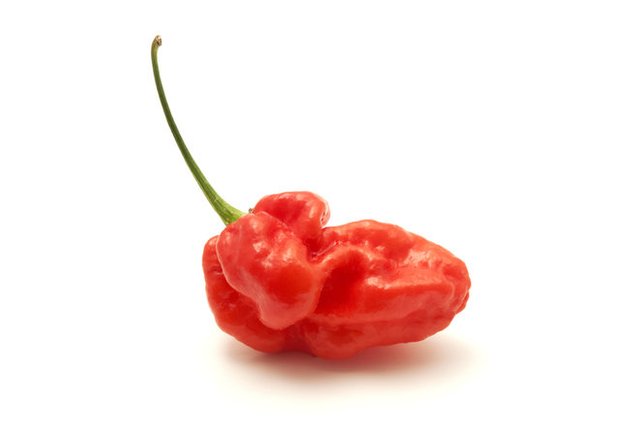Fans of spicy foods might be doing their hearts a favor by adding more heat to their meals, a new study from China suggests.
Researchers found that people in China who enjoyed spicy foods the most tended to eat less salt and have lower blood pressure than those who enjoyed spicy foods the least, according to the study.
And the link between spicy and salty foods could be traced all the way to the brain. [9 New Ways to Keep Your Heart Healthy]
The enjoyment of spicy foods significantly reduced a person's preference for salt — and subsequent intake of it — by modifying that individual's taste for salt in the brain, said lead author Dr. Zhiming Zhu, a professor of cardiovascular medicine at Third Military Medical University in Chongqing, China.
The findings, which were published today (Oct. 31) in the journal Hypertension, could have important implications for heart health. That's because, despite current efforts to reduce high blood pressure have emphasized o get people to cutting back on salt in cooking, at the table and in prepared foods, not much of a dent has been made in reducing people's salt intake, the researchers said. That's why a new — or different — approach may be needed to shift taste buds away from salt.
In the new study, the researchers wanted to see if adding spiciness to foods could be such a new approach. To do so, they recruited about 600 adults to see whether consuming more spicy food affected their taste preferences for salt.
Spicy foods and the brain
The people in the study were divided into three groups — low, medium and high preference — based on how well they could tolerate a solution containing capsaicin, which is the heat-producing compound found in chili peppers.
The researchers found that the more that people in the study said they enjoyed spicy flavors, the more sensitive they were to saltiness and the lower their threshold was for considering something too salty. This may be why lovers of spicy flavors tended to consume less salt — about 2.5 grams less per day on average — and had lower blood pressure than people who disliked spicy flavors, the study found.
People with a high preference for spicy foodhad systolic blood pressure that was reduced by an average of 8 millimeters of mercury (mm Hg), and their diastolic pressure was reduced by an average of 5 mm Hg, compared to with people with a low preference for spicy food. (Systolic blood pressure is the top number in a blood pressure reading; diastolic blood pressure is the bottom number.)
To find out more about how people reacted to the taste of spicy and salty foods, researchers conducted brain scans of the study participants as they sampled these flavors. The researchers focused on two brain regions — the insula and orbitofrontal cortex — known to be responsive to the taste of salt.
The results showed that areas of the brain stimulated by salt and spiciness overlapped, and that spiciness further increased brain activity in areas activated by salt.
Spicy food may trick the brain into perceiving that the person is tasting a salty food, Zhu told Live Science. Spiciness makes a person taste a higher level of saltiness, even when a reduced amount of salt is actually consumed, Zhu said.
If a person can tolerate the heat, consuming more spicy food in the form of chili peppers or by gradually increasing hot spices in cooking may have health benefits, Zhu said. It appears to make a person more sensitive to the taste of salt, so they can enjoy food containing less of that ingredient, he said.
One of the limitations of the findings is that they may be generalizable only to people in China, because the phenomenon has not yet been studied in other populations, the researchers noted. In addition, the study looked at the impact only of capsaicin on salt preferences and not of other types of spices.

Hi! I am a robot. I just upvoted you! I found similar content that readers might be interested in:
https://www.livescience.com/60809-spicy-foods-trick-brain.html
Downvoting a post can decrease pending rewards and make it less visible. Common reasons:
Submit